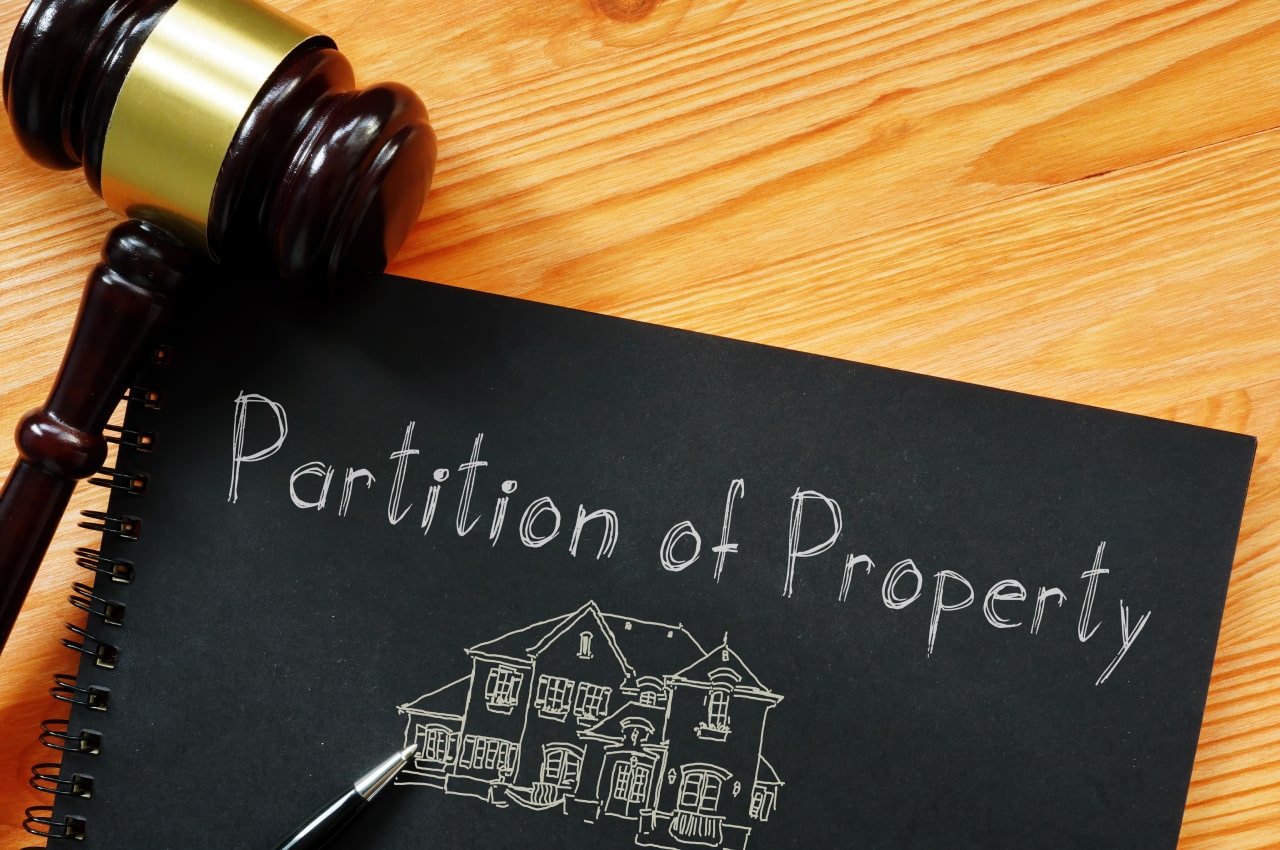Property Partition Case & Possible Defenses In Florida
Property Partition Case & Possible Defenses In Florida

Possible Defenses To Partition Action During Probate
In society, partition cases are very prevalent. A property division case may involve a difficult legal procedure. You can save money by properly preparing for a property division case.
It is essential to be aware of the possible defenses available in a property partition case. This is so that you can make an informed decision about whether or not to file a claim. Several possible defenses are available, including inverse condemnation, joint tenancy, and tenancy in common.
Knowing which defense applies to your situation can help you build a strong case and could save you from having to spend money on legal fees. You can win a property division case with the help of competent defense advisers. Find a property partition lawyer who is familiar with the defense strategies you have at your disposal.

Property Partition Cases
Property partition is a term used to describe a situation when two or more parties have different desires for the distribution of assets. In most cases, property partition can be resolved through negotiations between spouses.
However, if negotiations fail, several possible legal proceedings can be taken. Property partition can arise in several different situations. For example, one spouse may want to keep the marital home while the other wants to sell it.
Another scenario is when one spouse owns a priceless piece of property and does not want to transfer it to the other spouse. A property partition lawsuit may be required to settle the conflict in these kinds of situations.
Suppose negotiations between spouses fail and property partition becomes an issue. In that case, several steps must be taken before any legal action is taken.
First and foremost, you will need to hire a lawyer to help with the process. Doing so will ensure that everything goes smoothly and that both sides of the property partition case are represented fairly.
Second, make sure to keep all of your documents related to the case close by. This includes any deeds, contracts, or other paperwork that proves ownership of the properties involved in the case. Lastly, be prepared that this process may take some time to complete.
Necessary Elements In A Property Partition Case
To successfully bring a property partition case, the parties must demonstrate an irreconcilable difference in their asset holdings. They should also argue that the division of assets would be in the best interests of both parties.
For property partition to be successful, a few key elements are necessary.
The first step is to identify the property that will need to be divided. This can be done through surveys and appraisals or by taking into account which assets are most important to each party.
The property must be divided into equal portions once it has been identified. This can be accomplished in an equitable manner, such as by measuring the squares of the land after being divided into them or by applying a predetermined formula.
Once the property has been divided, each party must agree to the terms of the partition. If there are any disputes over the terms of the partition, they must be resolved through court proceedings.
The plaintiff must also prove that they own or possess legal title to the disputed property. Also, they need to prove that the defendant has wrongfully interfered with their use and enjoyment of that property. In addition, the plaintiff must show that the interference has caused them damages.
A plaintiff typically relies on documentary evidence such as deed recordings or court records to establish ownership or possession of the legal title. To show that the defendant has interfered with their use and enjoyment of property, plaintiffs typically rely on circumstantial evidence.
Such example of circumstantial evidence would be testimony from witnesses, about how the disputed property is used. Finally, plaintiffs may also seek damages for lost profits or other economic losses due to the defendant’s interference.
Defenses To A Property Partition Case
Property partition is a legal term that refers to splitting a property into two or more parts. The motive for property partitioning can vary, but often it is done to avoid a legal battle or dispute.
The division of property may be a way to prevent an unfair equitable division to either party. There are many ways to argue that the property division was not done with either party’s interests in mind.
Necessary Parties Absent Defense
When a property partition case is filed, specific individuals are typically required to be present for it to go forward. These individuals are usually the spouses or cohabitating partners of the parties involved in the case and any children affected by the partition.
Assume these people are unavailable due to a conflict of interest or another reason. In that case, the case may be dismissed. Several defenses may be raised to avoid including these people in the proceedings, and each case will be different.
Equal Rights Defense
The equal rights defense in a property partition case can be persuasive if the party can demonstrate that they had an equal opportunity to acquire the property. They should also show that they intended to share equally in ownership.
For example, if one spouse bought the house together and later decided to split up the property, each spouse could argue that they had an equal right to own it. The defense is less likely to be successful if one spouse purchased the house independently. Moreover, it is less likely to be successful if they received special treatment from the seller or other third parties.
Necessary Expenditure Defense
Where one party argues that the other party has unnecessarily spent money on property, the burden of proof is on the party alleging unnecessary spending. This defense is often successful in cases where there is evidence of wasteful or unnecessary spending by the other party.
In order to successfully prove this defense, the plaintiff must show that the amount of money spent was excessive. Also, they must show that the money was unnecessary for either the preservation or acquisition of the property in question.
Estoppel Defense
When a person intends to prevent another from acquiring an asset, that person may have a defense to a property partition case based on estoppel. The doctrine of estoppel prohibits someone from asserting a position in litigation that they know to be false or misleading.
Estoppel requires the defendant to demonstrate two elements in order to be successful. First, they should intentionally mislead the other party, and second, the other party relied on that misinformation. This doctrine can be used in cases where one person tries to keep another from acquiring an asset through threats or coercion.
Adverse Possession Defense
In a property partition case, the defense to possession will likely be adverse possession. Adverse possession is an old law that allows someone to claim land ownership.
To accomplish this, they can use it as evidence that they have been using it unlawfully for a predetermined period of time. Depending on the state, this period may vary, but it usually involves some kind of use, like establishing fences or planting crops.
Adverse possession can be a powerful defense in property partition cases because it allows people to take over land that would otherwise be difficult to acquire. It also will enable people not originally from the area to establish their right to land, which can help protect against displacement by outsiders.
Waiver Of Rights Defense
A waiver of rights defense exists when a person knowingly and voluntarily dismisses their right to assert certain legal protections against another party. This can be done to facilitate a negotiated resolution of a dispute. Sometimes, it is used in cases where the person feels they would not be able to exercise their right effectively. In order to successfully assert this defense, the person must meet three essential requirements:
- They must have been aware of their right when it was waived.
- They must have voluntarily relinquished that right.
- The waiver must have been made to settle or resolve the dispute.
Challenging The Plaintiff’s Standing
If you are the defendant in a property partition case, you may wonder what defenses you have. One defense that is commonly used is challenging the plaintiff’s standing.
Accordingly, the plaintiff is not entitled to legal counsel because they have no valid reasons to be involved in the conflict. In some cases, it may also be possible to argue that the property division should not take place at all.
Due to one party’s lack of involvement in the relationship, this can be contested. Suppose you can challenge the plaintiff’s standing successfully. In that case, it may result in your case being dismissed or reduced in severity.
Non-Binding Arbitration Agreements
When parties enter a contract, they usually believe their agreement is binding. However, in some cases, one or both parties may wish to settle a dispute outside of the court system.
One way to do this is through the use of arbitration agreements. Arbitration agreements are not legally binding but can help settle disputes between parties.
Arbitration agreements are not as common as contracts, but they can be helpful when settling disputes between parties. Parties can often reach an agreement without going to court.
The two parties can settle their disagreement amicably without resorting to the legal system because of arbitration agreements, which are typically non-binding. Both parties stand to gain from this since it will allow them to settle the dispute quickly without having to pay costly fees.
&
Have questions about how to get started on your estate plan or estate needs?
Have questions about how to get started
on your estate plan or estate needs?
Contact the experienced estate planning professionals at The Estate Plan
by calling us at (305) 677-8489.
Contact the experienced estate planning professionals at The Estate Plan by calling us at
(305) 677-8489.

